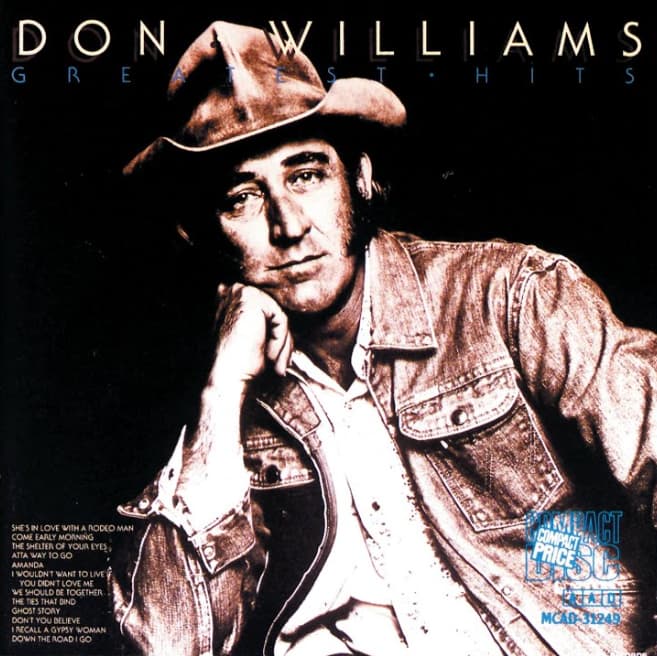
The Gentle Giant’s Early Triumph: Finding a Winner in Love
When we talk about the bedrock of country music, especially the kind that eases the soul and offers a warm embrace, the name Don Williams is utterly inescapable. His smooth baritone and unhurried delivery were a balm to a generation, and one of the early self-penned gems that helped establish his signature style was the quietly profound “Atta Way to Go.” Released in November 1973 as the lead single from his album, Don Williams Volume Two, this song wasn’t just another track; it was an important milestone in the career of “The Gentle Giant.”
In an era of flashy, over-the-top performances, Williams offered something different: a genuine, down-to-earth connection. And that sincerity shone brightly in this track. It’s a simple, yet deeply felt, celebration of finding true, reliable love—the kind that makes you feel like you’ve finally won after a long string of defeats. The meaning is right there in the title and the refrain: it’s an affirmation of success in love, a joyful recognition of having a partner who makes life feel like a victory. Williams sings of knowing the pain of trying and failing, but finally finding “what it’s all about” with a love he can “hold on to.” It’s an ode to steadfastness, to the calming assurance that comes from a secure relationship.
Commercially, “Atta Way to Go” was a solid success, charting at number thirteen on the Billboard Hot Country Singles chart. While he would go on to have many more number one hits, this single was crucial. It confirmed that the sound established on his first album was resonating with audiences and further cemented his place among the era’s emerging country stars. What makes this chart position especially noteworthy is that it was one of the very few singles that Don Williams wrote entirely himself to become a charting hit. Many of his biggest songs, such as “Good Ole Boys Like Me” or “Tulsa Time,” were penned by songwriting titans like Bob McDill. This personal achievement demonstrated Williams’s own considerable skill as a lyricist and composer, proving he could hold his own not just as an interpreter, but as a creator of meaningful country material.
The production, handled by long-time collaborator Allen Reynolds, is a masterclass in understated elegance—the signature sound that would define Williams’s work throughout the 1970s and beyond. It’s acoustic, uncluttered, and allows the narrative and that unmistakable voice to take center stage. For those of us who came of age listening to country music, this song evokes a powerful sense of nostalgia—a time when music was less about production gloss and more about honest storytelling. It reminds us of a simpler era, perhaps sitting in a quiet room, the warm glow of a stereo amplifier illuminating the album cover, feeling every word sink in. It’s a snapshot of a time when the “good ole boy” ethos was woven into the fabric of the music, and Don Williams was arguably its finest, most gentle ambassador. This song is a cherished piece of his legacy, a humble song of gratitude for lasting love that still feels resonant and true today.